Space
Sign up for our newsletter
We summarize the week's scientific breakthroughs every Thursday.
-
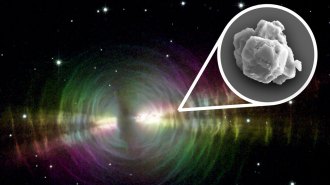 Space
SpaceThis ancient stardust is the oldest ever to be examined in a lab
Tiny grains of stardust that formed long before our solar system are giving new insight into star formation in the Milky Way.
-
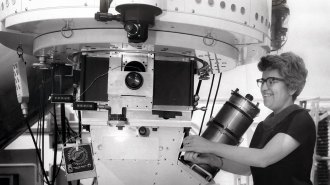 Space
SpaceDark matter pioneer Vera Rubin gets a new observatory named after her
A new effort to study the cosmos is named after Vera Rubin, an astronomer who searched out dark matter and battled sexism.
-
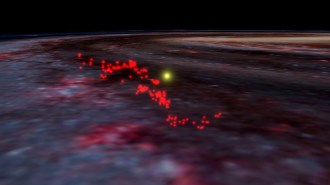 Space
SpaceA giant wave of gas lurks near our solar system
The Earth and sun are relatively near a newfound, wavy rope of star-forming gas, named the Radcliffe Wave.
-
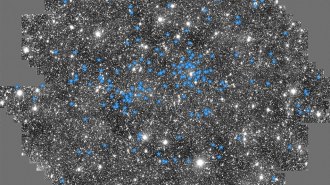 Space
SpaceYoung stars have been found in an old part of our galaxy
A newly discovered star cluster in the Milky Way’s halo seems to have been deposited there by gas torn off of two satellite galaxies.
-
 Space
SpaceBubble-blowing galaxies could help solve a cosmic mystery
Three galaxies ionizing hydrogen 680 million years after the Big Bang show a potential step in the ionization of nearly all hydrogen in the cosmos.
-
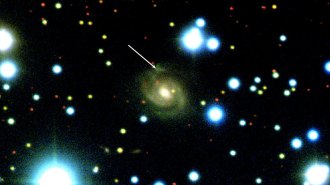 Space
SpaceThe home galaxy of a second repeating fast radio burst is a puzzle
The second galaxy known to host brief, brilliant flashes of radio waves known as a recurrent fast radio burst looks nothing like the first.
-
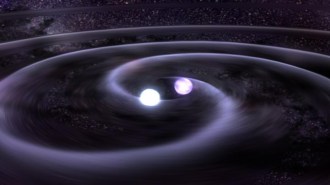 Astronomy
AstronomyLIGO detects its second neutron star collision, but gains few clues
Gravitational waves have once again heralded a smashup between neutron stars, but this time with no flash of light to help guide understanding.
-
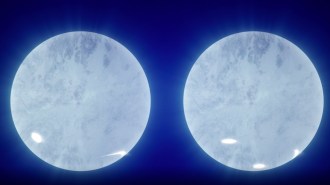 Space
SpaceThe first glimpses of a pulsar’s surface hint at complex magnetism
Maps of a rapidly spinning neutron star could eventually help researchers figure out how matter behaves at extraordinarily high densities.
-
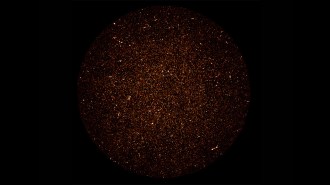 Space
SpaceA new map reveals radio waves from tens of thousands of galaxies
Radio waves from about 17,000 galaxies show that the peak of star formation, about 10 billion years ago, might have been more productive than predicted.
-
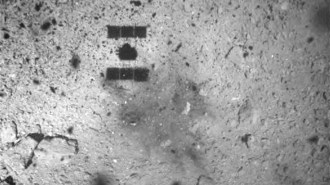 Space
SpaceHow 2019’s space missions explored distant worlds
Planets and asteroids and Arrokoth, oh my. Space probes had a busy year.
-
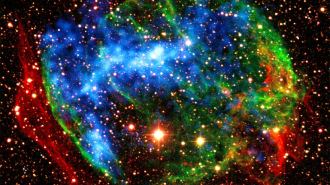 Space
Space50 years ago, scientists didn’t know where heavy elements came from
Five decades ago, scientists suspected ordinary supernovas created heavy elements. Now we know they don’t, but merging neutron stars do.
By Sofie Bates -
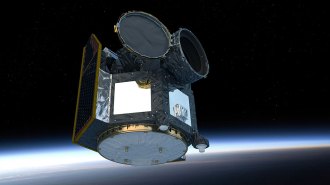 Space
SpaceA new mission to investigate exoplanets has rocketed into space
The European Space Agency’s CHEOPS satellite has launched on a mission to gather intel on previously discovered planets outside of the solar system.